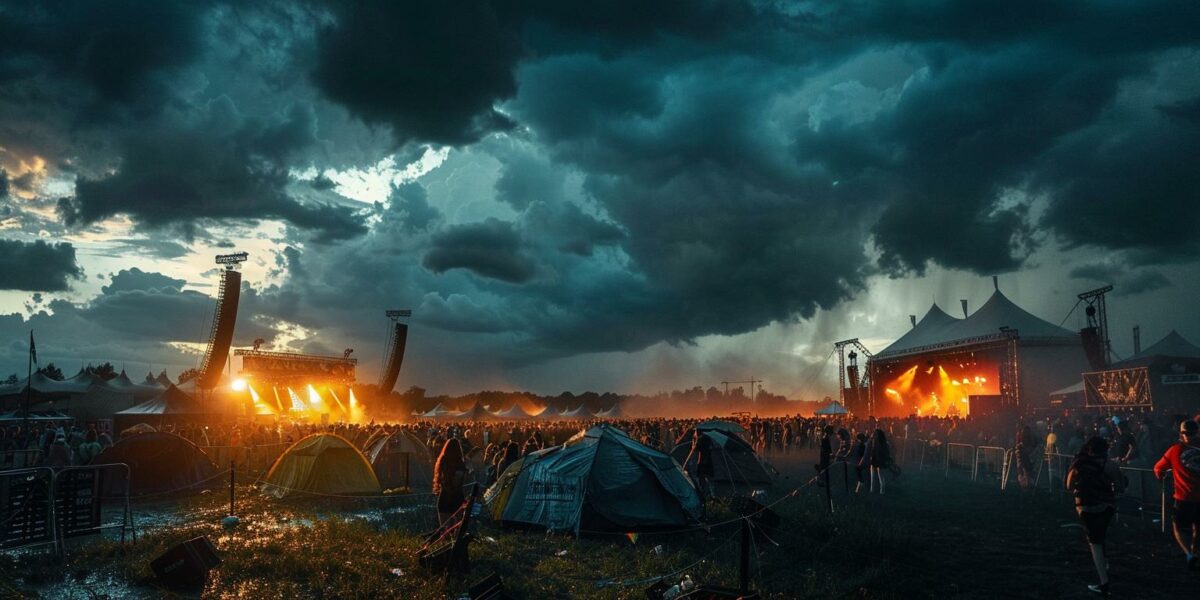Lollapalooza Faces Stormy Forecast
Festival attendees at Lollapalooza should brace for an eventful weekend, with predictions of heavy thunderstorms and temperatures climbing into the high 80s. As the unpredictable weather looms, meteorologist Kevin Kloesel emphasizes that relying on hope is not a strategy for safety.
Reflecting on recent events, the Sueños Music Festival was disrupted by severe weather merely three months ago, leading to schedule delays and cancellations. Similarly, the NASCAR Chicago Street Race faced interruptions due to unexpected downpours last year, illustrating the growing unpredictability of weather patterns.
Climate change is at the heart of these challenges, making weather conditions more extreme and difficult to predict. According to Billboard, over 30 major concerts in 2023 were affected by harsh weather, underscoring the need for robust planning and safety measures.
Kevin Kloesel notes that while the types of hazards remain consistent — wind, rain, hail, and heat — their intensity has escalated. In the Midwest, storm winds have become five times more frequent since the 1980s, with significant increases in annual rainfall and storm severity.
Proactive Measures for Event Safety
Given these challenges, Lollapalooza and similar events are prioritizing inclement weather precautions through close collaboration with city officials. This year, the event organizers are taking extra steps to ensure attendee safety.
Key measures include:
- Coordination with the National Weather Service for real-time weather updates
- Designating secure evacuation sites such as nearby garages
- Implementing robust shelter plans that go beyond temporary tents
Historically, Lollapalooza has faced evacuations due to severe weather in 2012, 2015, and 2017. The festival has evolved to incorporate comprehensive weather plans, making it a model for other events looking to enhance safety protocols.
As weather patterns become more erratic, public safety remains a top priority for both festival organizers and city officials. The Office of Emergency Management and Communications maintains constant communication with weather services to monitor and respond to sudden changes.
Reducing the Carbon Footprint
In addition to weather-related challenges, Lollapalooza is addressing its environmental impact by reducing carbon emissions. Traditionally, diesel generators have powered outdoor events, but they emit significantly more pollutants compared to electrical grids.
This year, Lollapalooza is pioneering the use of a hybrid battery and generator system for its main stage, aiming for substantial fuel and emissions reductions. This initiative could set a new standard for festivals nationwide, demonstrating the feasibility of greener energy solutions.
Past efforts included using solar power for headliner performances, such as Billie Eilish’s partially solar-powered set last year. These initiatives reflect the music industry’s potential to lead climate action and influence large audiences.
Beyond energy solutions, the festival is promoting sustainable practices through recycling programs, plant-based dining options, and water refill stations. These efforts are part of a broader strategy to mitigate the environmental impact of large-scale events.
Future of Music Festivals Amid Climate Change
Looking ahead, Lollapalooza has secured its place in Chicago through 2032, offering significant economic benefits to the city. However, the timing of future events may shift to avoid extreme summer weather.
Kevin Kloesel suggests that scheduling festivals during milder seasons, such as late spring or early fall, could become a common practice. Examples include Austin City Limits in October and Coachella in April, both organized by C3 Presents.
While festivals are unlikely to disappear, organizers will need to adapt to changing weather patterns by leveraging advanced weather data and creative scheduling strategies. This proactive approach will help ensure the safety and enjoyment of festivalgoers.
By embracing innovative solutions and prioritizing environmental sustainability, the music festival industry can continue to thrive despite the challenges posed by climate change.



tobytranquility0
LOL, guess I’ll need both sunscreen and an umbrella this year!
lillian
Great to hear they’re reducing their carbon footprint. Every little bit helps!
lincoln
Will the hybrid battery and generator system be enough to power the entire main stage?
TrinityOdyssey
Climate change is really showing its effects. Time to take it seriously, folks!
matthew
Thanks for the update. I’ll make sure to bring my raincoat and stay hydrated!
matthew_flux
Are they going to cancel the event if the weather gets too bad?
zoey
Oh no, I was so excited for Lollapalooza! 😢
SavannahFlare
Wow, this is crazy! How are they planning to keep everyone safe in such weather conditions?